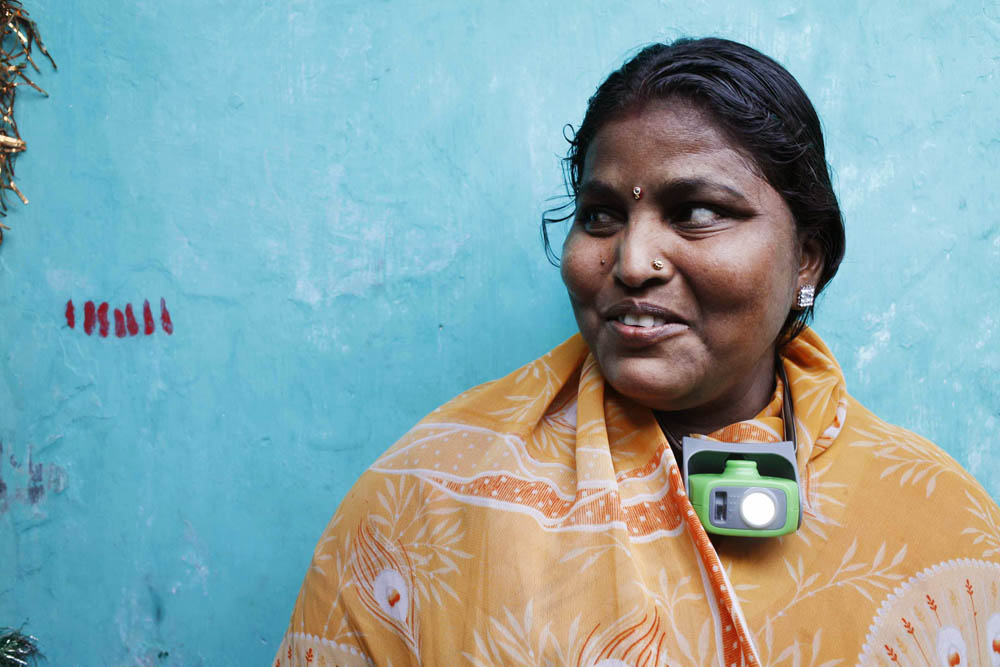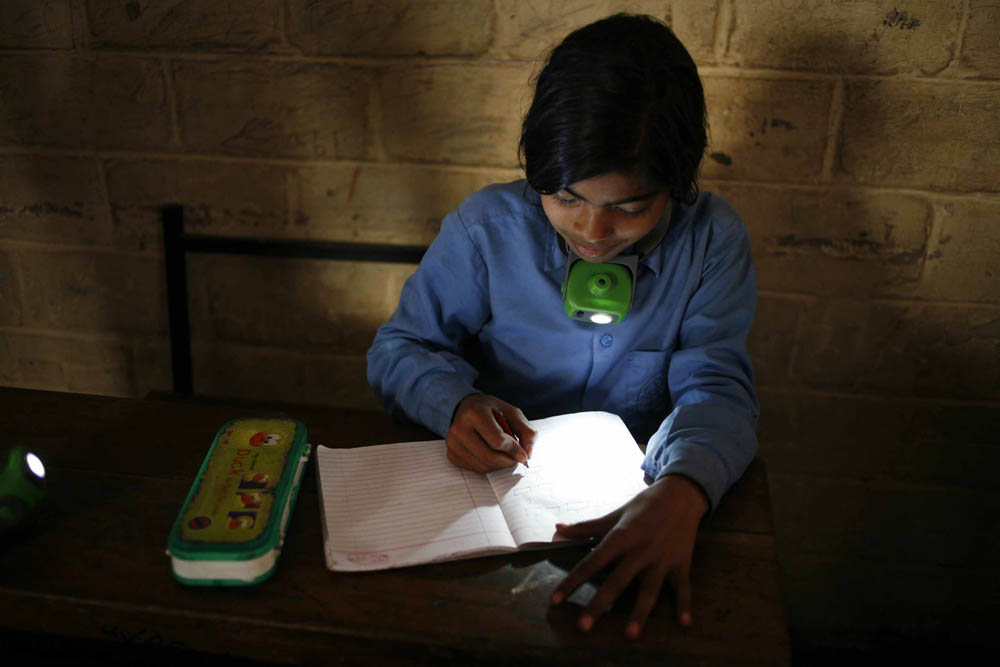DATABASE
Nuru Energy to empower
ongoing
Country
Bangladesh
Nepal
Myanmar
India
Sri Lanka
Budget
0 - 500.000 $
Year
2015
Issue
Solutions
Link
nuruenergy.com
Abstract
Nuru Energy has developed a solution for providing lighting solutions to energy deficient areas in South Asia. The solution consists of providing a rechargeable LED light which can be charged via solar panel and pedal generator (human power). The goal is to provide clean, efficient and affordable lighting solutions to those who need it the most.
Project Description
With a dual mission to promote rural livelihoods and provide energy and lighting solutions we have developed the world’s most efficient and affordable off-grid lighting and low-power energy system (PowerCycle - our pedal generator). We also offer solar products making us one of the only firms offering dual sources of renewable energy. The current project aims to offer a viable source for lighting and mobile phone charging in energy deficient areas. PowerCycle, the world’s first commercially available pedal generator was launched in India along with modular, multifunctional LED Lights called NURU lights in 2011. The solar panel charged lights were introduced in 2012 making us one of the only few firms in the world to offer dual source of renewable energy to charge lights. We offer task and ambient lighting solutions. Our products can be used indoors and outdoors. Currently we operate in Orissa, Bihar and Maharashtra in India and have also found partners in Nepal, Sri Lanka, Myanmar and Bangladesh. Our entry level product retails at USD 10 and our most enhanced product retails at USD 27. Our attempt has been to target off grid areas which are out of reach for most other bigger and more expensive solutions. We have linked our projects with local initiatives in villages wherever possible i.e. providing lights which can be used by women to keep themselves safe while using an outdoor toilet and tying up with microfinance companies to provide end user finance.
BENEFICIARIES
In off grid villages and towns with irregular energy access farmers and students (esp. girls) are key beneficiaries. We offer an outdoor lamp for farmers and a study light for students. We also promote village level entrepreneurs and Self Help Groups by providing them an alternate income source.
Results
Our products pay for themselves in 3 months time when compared to savings over Kerosene. So not only do our consumers save money, they also gain access to a reliable, environment friendly and well designed lighting product. We have so far impacted 20,000 lives by selling 5000 lights in these areas and will aim to impact 40,000 lives by end of 2015. Each household (post three months of using the products) is saving INR 120 (USD 2) per month by using Nuru products. In addition we have set up 50 entrepreneurs who have enhanced their income by INR 12000 (USD 200) annually. Each light in use mitigates 0.08 tonnes of carbon annually. Therefore the total project has offset 400 tonnes (maximum) of carbon so far and we plan to offset another 800 tonnes (maximum) in 2015. Anecdotally users of lights have reported higher working hours if they run an outdoor retail unit and students are able to study for longer at night. In addition women report feeling safer outdoors in dark with our light
Business Model
Our model aims to make the project self sustainable. Our micro entrepreneurship model ensures that the rural off grid community develops village level entrepreneurs who run their own micro enterprise and serve others by charging and selling lights using the PowerCycle (PWC). Each PWC can cater to community of 100 households. For the more developed markets we distribute solar lights via existing distribution networks. Customising the model based on market needs will help generate scale for us.
Lessons Learnt
Our number one lesson has been that every customer segment has specific needs. We have therefore expanded our portfolio to cater to multiple needs. We also learnt that customers don’t necessarily look for cheapest product. We have therefore always innovated to provide most value at an affordable price. Another learning is that trust needs to be earned for the long term and it’s worthwhile to spend extra on servicing and quality to earn that trust. A counter intuitive learning has been that not all rural customers want subsidies. There are some who would rather pay than be given a substandard product for free. Lastly a lesson learnt is that nothing works better than positive word of mouth.
Key Feature
As most other organizations in this space are focused on only solar products our flagship offering is a human powered pedal generator. This is boldly innovative as it uses a resource in abundant supply - human energy while ensuring that upfront ownership cost is as low as possible. The POWERCycle can charge 5 lights fully in 20 minutes and each light can offer up to 30 hours of light. By providing a solar option and keeping the PWC as backup we can supply a rural off grid community 24/7 access to lighting. This factor ensures easy replicability across communities and thus lends the project to achieving scale. In Bihar and Orissa we have also launched a partnership with Basix, India’s most trusted microfinance institution for offering loans for PWC. In addition we are partnering with Sulabh, the biggest NGO in world in the sanitation space thus impacting energy access; women’s security and sanitation at one go.
Other significant information
Developing world governments, multi- and bi-lateral donors and grassroots organizations are realizing more and more that without solving the energy access issue, we cannot even begin to make headway on the other development goals. These same public sector actors are also realizing that extending the electricity grid is a costly and time consuming endeavour and that large scale renewable energy solutions hold promise, but still face technical and financial barriers that limit how quickly they can scale. Small scale off-grid solutions, and in particular hyper-local solutions (like ours) are necessary, but only those that take into account the unique energy needs of the USD1-2/day base of pyramid populations and that can provide affordable, reliable access will be highly scalable. In addition the new CSR act in India has come at right time for us. We have built the on ground infrastructure that many corporate foundations can use to take our solutions where it is most needed.
Main Donor
SIDA, REEEP
(International agencies)
Implementing Actor
Sulabh, REAP, Jeevika (NGOs)


